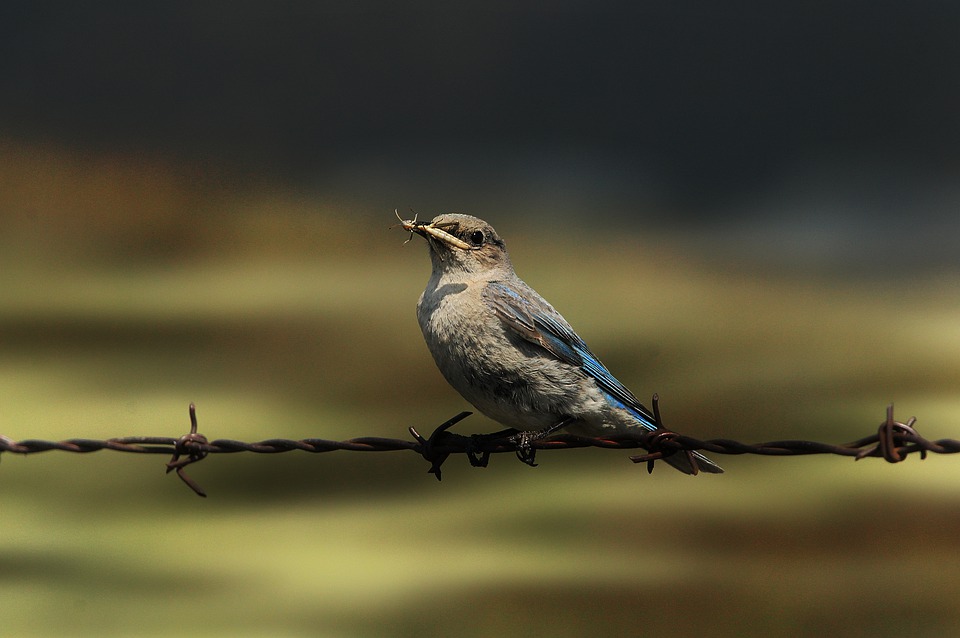Which Reading research publications got the most attention across the globe in 2018? We’ve scoured Altmetric data to bring you the top eight most talked about Reading-authored papers of the past year.
1. Hotter summers are harming our health

Rising temperatures as result of climate change are already exposing us to an unacceptably high health risk, according to the Reading paper of 2018 which made the biggest splash.
The Lancet Countdown: Tracking Progress on Health and Climate Change warned, for the first time, that older people in Europe and the East Mediterranean are particularly vulnerable to extremes of heat – and much more so than those in Africa and South-East Asia. Compared with 2000, the study showed that 157 million more vulnerable people were subjected to a heatwave in the last year. 2017 saw 153 billion hours of work lost due to extreme heat as a result of climate change.
The research involved Reading’s Professors Elizabeth Robinson and Nigel Arnell alongside leading doctors, academics and policy professionals from 27 organisations.
Read our news story on the research

2. Ocean currents that warm our coasts are slowing down

Ocean currents that help warm the Atlantic coasts of Europe and North America have slowed markedly since the 1800s and are at their weakest in 1,500 years. That’s the finding of our second most talked-about paper of the year, published in Nature.
The Atlantic Meridional Overturning Circulation (AMOC) is a critical part of our planet’s climate system. The authors, which include Reading Meteorologist Dr Jon Robson, say that AMOC has been weakened by melting of Arctic ice since the ‘Little Ice Age’ of the mid-19th century, and that global warming is likely to continue this trend.
A big change in AMOC could cause sea levels on the US east coast to rise, affect European weather patterns and harm marine wildlife.

3. 467 dangers to people on our warming planet

Heatwaves, drought, floods, fires, storms, sea-level rise and ocean chemistry are all being triggered by the emissions of planet-warming greenhouse gases including carbon dioxide.
A group of climate scientists including Reading’s Professor Ed Hawkins have found traceable evidence for 467 pathways by which human health, water, food, economy, infrastructure and security have been affected recently by these climate hazards.The findings were published in our third most attention-grabbing paper of the year.
Even if our emissions are dramatically reduced, by 2100, the world’s population will be exposed to the most extreme version of one these catastrophic events – and three if they are not, the research suggests. Some tropical coastal areas could face up to six simultaneous hazards.
The paper was published in Nature Climate Change.

4. Empathy is down to genetics, not our sex

A huge study in nearly 47,000 people has shown that our ability to empathise with others is partly down to genetics. While women are on average more empathetic than men, the difference isn’t down to differences in DNA between the sexes.
Instead, the authors suggest, empathy is driven by other factors, such as hormone influences in the womb before we are born, or differences in the way boys and girls are socialised as they grow up. Variations in our genetics linked with lower empathy were also more commonly found in people with autism, schizophrenia and anorexia, the research showed.
The study was co-authored by Dr Bhismadev Chakrabarti from the University of Reading’s Centre for Autism and was published in Translational Psychology.

5. Plastic pollution takes to the skies

Our fifth most read paper of 2018, published in Biology Letters, revealed that tiny fragments of plastic eaten by water-dwelling larvae of flying insects – such as mosquitoes – are able to transfer to the adult insect. This shows that plastic pollution entering the food chain via a previously unknown route: the birds and bats who eat the insects.
Reading biologist Professor Amanda Callaghan, the paper’s lead author, said: “This is eye opening research, which has shown us for the first time that microplastics are able to navigate several life stages in flying insects, allowing them to contaminate all kinds of living creatures who would not normally be exposed to them. It is a shocking reality that plastic is contaminating almost every corner of the environment and its ecosystems.”

6: How the words we use can reveal depression

Depression doesn’t just change the way you move, sleep and interact with those around you – it is also noticeable in the way you speak and express yourself in writing. Our sixth most talked-about paper of 2018 has unveiled a class of words that can accurately predict whether or not a person is suffering from depression.
The study used computerised text analysis to spot linguistic features within essays and diaries written by depressed people, as well as texts written by well known people with depression, such as Kurt Cobain and Sylvia Plath.
The paper, published in Clinical Psychological Science and co-authored by Reading PhD student Mohammed Al Mosaiwi, found that depressed people were more likely to use negative words, and also first person singular pronouns such as ‘me’ and ‘I’. Depressed people’s black and white view of the world was also betrayed by their more frequent use of absolutist words, such as ‘always’, ‘nothing’ or ‘completely’
“Having more tools available to spot the condition is certainly important to improve health and prevent tragic suicides such as those of Plath and Cobain,” said Mr Al Mosaiwi in a piece for The Conversation, which has since been read by over a million people worldwide.

7. WW2 bombs shook the edge of space

Bombing raids by Allied forces during the Second World War not only caused devastation on the ground but also sent shockwaves through Earth’s atmosphere which were detected at the edge of space. These findings, widely reported in the media, were made by a Reading Atmospheric Physicist and a Reading Historian.
The pair studied daily records collected at a research centre in Slough between 1943-45 of radio pulses sent up to 300km above the Earth’s surface to reveal the height and electron concentration within the upper atmosphere.
Their research revealed that the shockwaves produced by huge bombs dropped by Allied planes on European cities were big enough to weaken the electrified upper atmosphere – the ionosphere – above the UK, 1,000km away.
Chris Scott, Reading Professor of Space and Atmospheric Physics, said: “It is astonishing to see how the ripples caused by man-made explosions can affect the edge of space. Each raid released the energy of at least 300 lightning strikes. The sheer power involved has allowed us to quantify how events on the Earth’s surface can also affect the ionosphere.”
The study, co-authored by Reading History Professor Patrick Major, was published in Annales Geophysicae.
Read our news story on the research and watch the authors explain the findings

8. Pollution is starving trees by killing their fungal allies

Pollution is damaging forest fungi which supply trees with essential nutrients and water from the soil, according to our eighth biggest paper of 2018.
The paper, which includes Reading biologist Dr Hyun Gweon as a co-author, shows that current limits on pollution may not be enough to protect the essential fungi that live on the roots of trees.
Mycorrhizal fungi, some species of which form much-prized truffles, can live for decades beneath the surface, growing to several square metres in size.
The researchers studied 40,000 roots from 13,000 soil samples at 137 forest sites in 20 European countries, including the UK, over 10 years. They found local air and soil quality have a large impact on these important fungi.
Read the original paper, published in Nature.

The Altmetric Attention Score (shown in the badges above) is a weighted count of all of the online attention Altmetric have found for an individual research output. This includes mentions in public policy documents and references in Wikipedia, the mainstream news, social networks, blogs and more. For this blog we’ve featured the top ten highest-scoring publications with a Reading-affiliated author published between December 2017 and December 2018.
